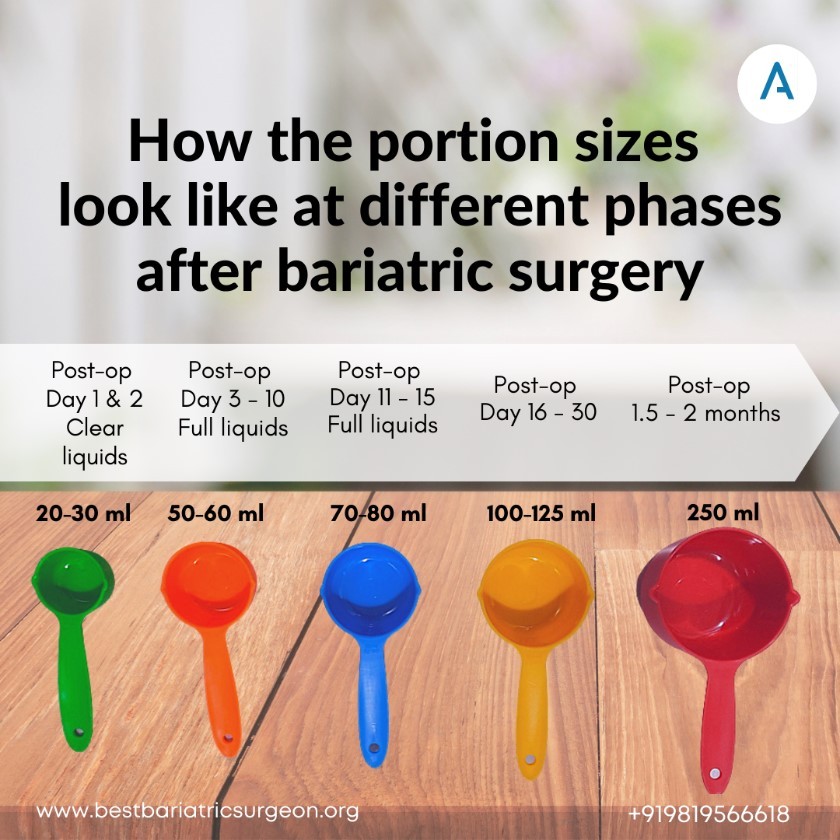Did you know? Bariatric surgery is an operation that will fulfil your dream of getting rid of those excess kilos, by making changes to your digestive system. However, it is important to know what you must do before and after a weight loss surgery. Best results are achieved when one knows what to expect after surgery.
People who have tried to lose weight, know how difficult and challenging it is. Most people go through a cycle of weight loss and weight gain for many years before they contemplate bariatric surgery. Bariatric surgery is the only effective option that leads to sustained weight loss in patients who suffer from morbid obesity. There are many kinds of weight loss operations such as sleeve gastrectomy, gastric bypass operations, banded weight loss procedures and so on. When combined with diet and lifestyle modification these can help you provide a much more sustained long-term weight loss.
Bariatric surgery leads to weight loss through multiple mechanisms. Restriction of food intake, feeling of fullness after smaller meals, reduced appetite, mal-absorption of nutrients, hormonal changes, changes in the gut bacteria etc are some of the mechanisms that will help you to cut down on those excess kilos. Your bariatric surgeon will recommend the most suitable operation for you after a clinical evaluation. Undergoing a bariatric surgery will slash down your risk of fatal conditions like stroke and heart disease, sleep apnoea, type 2 diabetes, high blood pressure, and non-alcoholic fatty liver disease (NAFLD). It also leads to improvement in joint pains, gout, PCOS, infertility and decreases the risk of many cancers associated with obesity.
Who should opt for it?
- As per the guidelines of the Obesity and Metabolic Surgery Society of India (OSSI) an individual with a BMI ≥ 35 Kg/m2 is eligible for bariatric surgery.
- An individual with a BMI ≥ 30 Kg/m2 is also eligible for bariatric/metabolic surgery in the presence of two associated diseases such as type 2 diabetes, high blood pressure, high cholesterol etc.
- Eligibility for bariatric/metabolic surgery is assessed after a complete clinical evaluation by the bariatric surgery team.
This is how you must prepare for a weight loss surgery
- After your clinical assessment you will be advised to undergo medical investigations and your medical fitness will be assesses by concerned specialists.
- You will be asked to adhere to a few vital instructions related to diet prior to your surgery. This may be for 7 to 15 days depending on your clinical profile and weight.
- You will be asked to avoid foods rich in carbohydrates and encouraged to take foods rich in protein. Sugars are best avoided. Smoking and alcohol intake must be stopped prior to surgery.
- If your tests reveal any nutritional deficiencies for vitamins, iron or calcium, supplementation for the same will be started prior to surgery.
- It is also very important to clear all your doubts and be stress free before the operation. Hence the more rounds of consultation you have with your bariatric surgery team, the better it is.
What to expect after a bariatric surgery?
- Once you undergo bariatric surgery then you will be fasting for 24 hours . During this period you will be kept on intra-venous fluids.
- You will be on liquids for the first 15 days after the surgery. In the stage 2 you will be on pureed foods for another 2 weeks. It is advisable to chew your food well, eat slowly and in small portions. Eating too fast or in large portions may lead to pain in the chest or vomiting in some cases.
- After a month, you will be started on normal diet. However, it will be very restricted in portion size. You will be able to eat only 3 or 4 portions at one go. You will need to eat very slowly and will need to give atleast 30 mins to every meal. It is also recommended to eat something every 2 to 3 hours as you will not be able to eat much at one go.
- It is advisable to avoid foods high in sugar and carbohydrates. Avoid fried foods and junk food right from the beginning. As time passes by you will be able to eat more quantities and if you continue to eat the wrong kind of foods, then you may start regaining weight. Focus on high protein food like chicken, eggs, meat and paneer, tofu and sprouts etc if you are a vegetarian,
- You must opt for low-impact exercises like walking, yoga, stretching, and swimming after 2 to 3 months of surgery. After 6 months, slowly you may resume strength training, cardio workouts and weight training. It is important to exercise as it helps to tone up and minimizes skin sagging after weight loss.
Bariatric/metabolic surgery is a life-changing surgery. It transforms a person beautifully. However, individuals who embrace lifestyle modification and a healthy diet after their surgery, get better results and maintain their weight loss for a much longer period.
About Dr. Aparna Govil Bhasker

Read more about Dr. Aparna Govil Bhasker- https://www.bestbariatricsurgeon.org/dr-aparna-govil-bhasker/
Please write in to info@bestbariatricsurgeon.org or draparnagovil@gmail.com & Call/Text/WhatsApp: +919819566618 or +919930922761
Dr. Aparna’s website is- https://www.bestbariatricsurgeon.org
You can read her lovely blogs on- http://www.aparnagovilbhasker.com
Dr. Aparna Govil Bhasker is a visiting bariatric surgery or weight loss consultant at the following hospitals:
- Saifee Hospital, Charni Road, Mumbai
- Gleneagles Global Hospital, Parel, Mumbai
- Apollo Spectra Hospital, Tardeo and Chembur, Mumbai
- Namaha Hospital Kandivali, Mumbai
- Suchak Hospital, Malad, Mumbai
- Currae Specialty Hospital, Thane
- Surya Hospital, Santacruz West, Mumbai
- Hinduja Healthcare Surgical, Khar West, Mumbai
- Apollo Hospital, CBD Belapur, Navi Mumbai
- MGM Hospital, Vashi, Navi Mumbai
Social Media:
- Facebook- https://www.facebook.com/draparnagovilbhasker/
- Linked in- https://www.linkedin.com/in/dr-aparna-govil-bhasker-82836b34/
- Twitter- https://twitter.com/aparnabhasker
- Instagram- https://www.instagram.com/draparnagovilbhasker/?hl=en
- You tube- https://www.youtube.com/user/aparnagovil/videos?view_as=subscriber





